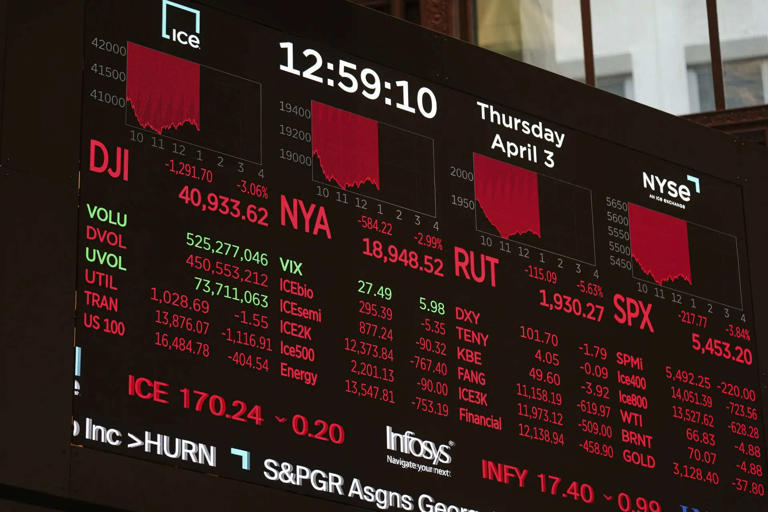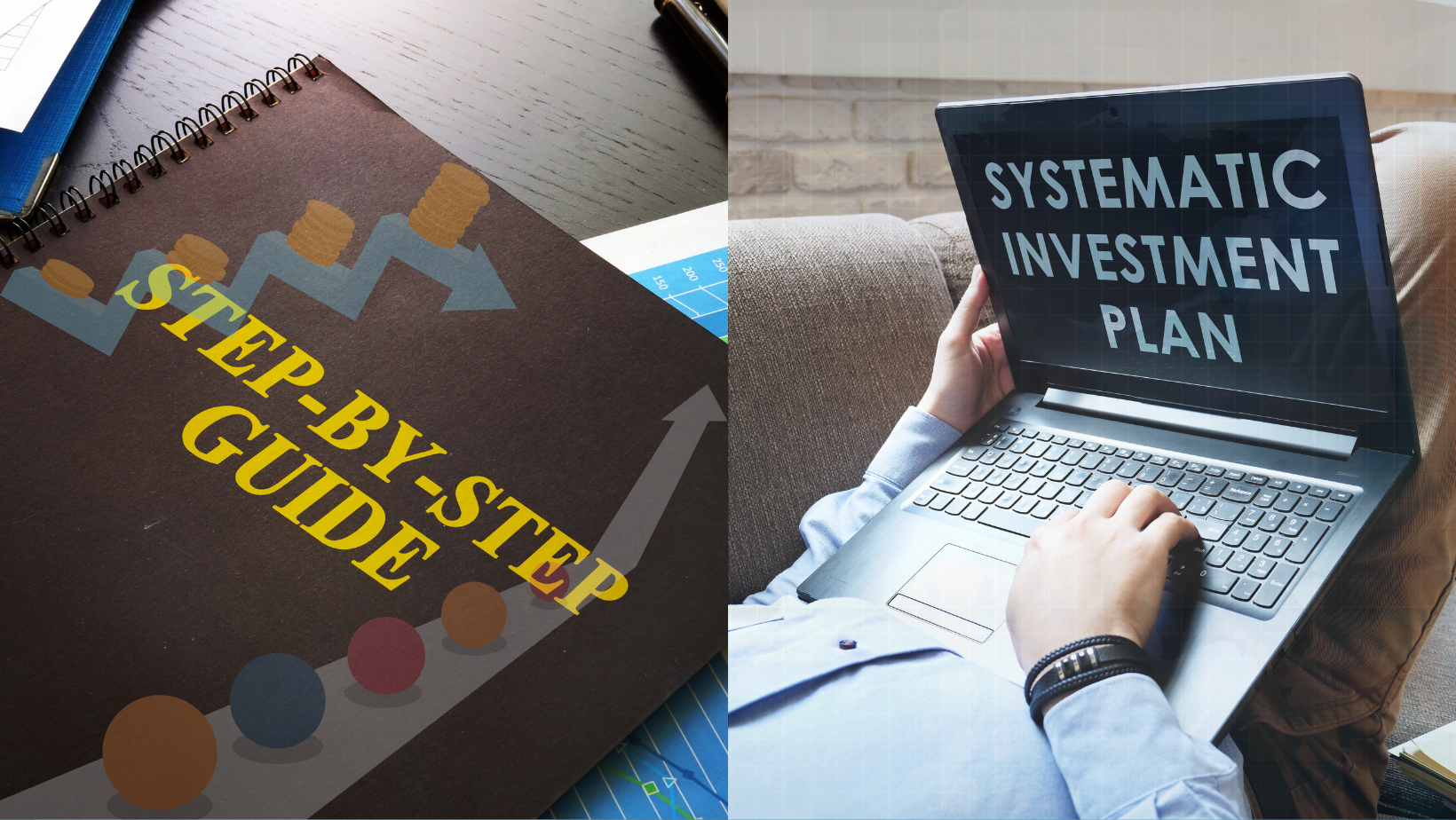- Rahul
- April 5, 2025
- No Responses
The Unraveling: How Tariff Wars Are Shaking the Foundations of the US Stock Market

Introduction: A Volatile Landscape
The world of finance can be unpredictable, and nothing highlights this volatility quite like the recent upheaval in the US stock market. As new tariffs introduced by President Donald Trump ripple through global trade, investors are navigating treacherous waters reminiscent of the economic uncertainties brought on by the COVID-19 pandemic in 2020. With stock prices plummeting and fears of recession mounting, the repercussions of these trade battles are sending shockwaves not only through Wall Street but across economies worldwide.
In this blog, we will dissect the current stock market scenario, delve into the impact of the tariffs, explore possible repercussions for businesses and consumers, and strategize how stakeholders can prepare for what lies ahead.
The Market Reaction: A Troubling Downturn
The immediate aftermath of Trump’s tariff announcements has been nothing short of catastrophic for the stock market. Major indices—namely the S&P 500, Dow Jones Industrial Average, and NASDAQ—witnessed substantial declines, each falling over 5% within a single week. For many investors, this has become a haunting reminder of the stock market’s rapid descent during the peak of the COVID-19 crisis, when uncertainties beckoned.
The S&P 500 faced a significant decline of nearly 6%, while the NASDAQ lost nearly a fifth of its value since last December, marking its entry into what analysts term a ‘bear market.’ The Dow, a barometer of economic health, dropped 5.5%, signaling to both investors and policymakers that something substantial is amiss.
But what triggered this downward spiral? One word: tariffs.
Understanding Tariffs: A Double-Edged Sword
In economics, tariffs are taxes imposed on imported goods, and the current situation showcases them as a double-edged sword that can protect domestic industries while potentially feeding into higher consumer prices. Trump’s administration has announced sweeping tariffs, including a 10% import tax on products from numerous countries—including key trading partners such as China, the European Union, and Vietnam.
This tax strategy reflects a broader vision of reshaping global trade to remedy perceived trade imbalances. However, the immediate consequences have led to market instability. As various sectors react differently, the scope of the tariffs is impacting industries that are reliant on international supply chains.
Historically, tariffs have been used as a tool to shield local industries from foreign competition, but the current landscape illustrates how they can also escalate costs and lead to global trade tensions. China responded aggressively, imposing a staggering 34% tariff on American goods, thus igniting fears of a drawn-out trade war that could have long-lasting repercussions.

The Economic Ripple Effect
The implications of tariff wars extend far beyond Wall Street; they have the potential to affect economies worldwide. Analysts have begun to raise alarms, with some institutions like JP Morgan estimating a 60% chance of a global economic recession this year—up from 40%—due to the anticipated crushing impact of these tariffs.
The interconnectedness of today’s global economy means that what happens in the US can reverberate across borders. Countries that rely on exports to the US may find themselves grappling with slumping sales, decreased demand, and economic contraction.
Consider that many American companies, particularly in sectors like technology and manufacturing, depend heavily on Chinese components. With tariffs increasing costs, companies like Apple and Nike—whose supply chains extend deeply into Asia—have already seen significant losses. Apple’s shares alone plummeted more than 7% one turbulent Friday, leading to an estimated 15% reduction in market valuation over a matter of days.
Moreover, consumers are bracing themselves for the reality of higher prices on everyday goods due to tariffs. With many credit card holders relying on financial flexibility, the burden of increased costs could reflect negatively on their credit scores. Savvy consumers need to be aware that, as prices rise, their ability to manage debt may impact their overall credit score. Building credit responsibly is crucial, particularly during such volatile economic times.
Analyzing Sector Responses: Who’s Winning and Losing?
The impact of tariffs on specific sectors has been starkly uneven. The immediate sell-off primarily targeted tech giants and retailers, industries most susceptible to tariff-induced price hikes. Notably, sectors typically buffered from such shocks—like consumer staples, utilities, and healthcare—felt the ripple effects, as investor sentiment turned sour across the board.
However, in all crises, there lie opportunities. The housing market, often viewed as more insulated from international volatility, showed some resilience. Investors speculated that ongoing turmoil could lead the Federal Reserve to consider lowering interest rates, making borrowing more affordable. This potential for lower mortgage rates could buoy home sales and influence housing-related stocks.
Additionally, those looking to establish or improve their credit—such as first-time credit card holders or new immigrants—may find that lower interest rates can help in building credit history. Good credit practices, such as ensuring timely payments and minimizing the balance on credit cards, can lead to an improved credit score.
The dichotomy among various sectors underscores the complexity of the tariff impact. While some areas face daunting challenges, others may find avenues for growth amid the chaos.
Small Business Perspective: Stories of Uncertainty and Resilience
In the wake of these developments, small business owners have emerged as the unsung victims of the trade war’s fallout. The grim reality is that many are already feeling the heat. Pat Muscaritolo’s appliance business, for instance, may buckle under the weight of significantly increased prices enforced by newly implemented tariffs.
Muscaritolo’s plight reflects a broader narrative. Small businesses often lack the resources and flexibility to navigate the turbulent waters created by rapid shifts in economic policies. With supply chains disrupted and purchasing costs skyrocketing, many small enterprises face existential threats.
Interestingly, these challenges also offer a catalyst for innovation and adaptation. Small businesses could leverage technology and online platforms to streamline operations, cut costs, and access new markets. Moreover, fostering local relationships and community support can help buffer the impact and enhance resilience in these tough times.
For many, becoming financially literate and understanding how to build credit can play a significant role in their survival. Understanding one’s credit score is essential, especially when seeking funding or applying for a credit card. After all, a good credit score is often a determining factor when accessing financial resources that can help small businesses weather economic storms.
The Broader International Implications
The international response to the US’s trade decisions cannot be understated. The European Union, along with other global players, has expressed wariness regarding escalating tariffs and counter-tariffs. Maroš Šefčovič, the EU’s trade commissioner, indicated that meaningful negotiations were essential for a balanced approach to international trade.
Meanwhile, nations like Vietnam are leveraging their relationships with the US to negotiate better terms, demonstrating that not all countries are willing to bear the burden of trade disputes.
These dynamics indicate that while the trade war may severely disrupt existing trade relationships, they could also lead to new opportunities for emerging economies willing to adapt and negotiate favorable terms. Companies that can pivot quickly and establish relationships in these regions could uncover new frontiers for growth.
In the context of a shifting global landscape, those new to credit—such as recent immigrants—must be particularly aware of how these changes can impact their credit score. Understanding how credit scoring works and being proactive in establishing credit history can greatly aid newcomers in their financial journeys.
Read also A Beginner’s Guide to Investing in Invoice Discounting
A Glimpse into the Future: What Lies Ahead?
With uncertainty gripping the markets, the question on everyone’s minds is: what comes next? The outlook remains murky. In the longer term, sustained tariffs could prompt significant shifts in global supply chains, potentially leading to a reconfigured landscape of trade relationships.
Investors and business owners must remain vigilant and responsive. The financial landscape may call for new strategies, such as diversifying investments and exploring alternative suppliers to mitigate risks associated with tariffs. Additionally, practices such as supply chain localization may become increasingly popular, allowing businesses to become less vulnerable to international disruptions.
Moreover, stakeholders need to keep an eye on government policies. The potential for negotiations exists, especially as some countries express willingness to engage in dialogue with the US about fair trade practices. How these discussions unfold could define the business environment for years to come.
For individuals looking to enhance their financial health, understanding how to check your credit score can be an empowering step. Tools for checking credit scores exist, including options for those without a traditional SSN. Immigrants and others may utilize ITINs to establish credit profiles, while understanding how to improve credit history can make a significant difference in one’s financial future.
Conclusion: Resilience in the Face of Uncertainty
In the grand tapestry of economic cycles, moments of turbulence—like the current tariff wars—often challenge businesses and investors alike. While loss and unpredictability are integral to this journey, they also breed adaptability and innovation.
The current economic climate stands as a testament to the interconnectedness of our global economy and the pressures exerted by policy decisions. As markets fluctuate and consumers brace for change, those who remain informed, agile, and prepared may very well emerge stronger on the other side.
As we look to the future, the ability to navigate uncertainty becomes a cornerstone of success. For businesses, investors, and consumers alike, the call to adapt and evolve is both a challenge and an opportunity in this age of global trade. For those looking to improve their financial standing, understanding credit scores, building credit history, and leveraging financial tools will be crucial for weathering economic storms ahead.
Also read
Investing in mutual funds through a nbsp Systematic Investment Plan SIP nbsp
The excitement among sneaker enthusiasts is palpable as we approach the release
When it comes to shoes the right pair can make or break

Welcome to Snikio, your ultimate destination for premium-quality shoes designed to keep you stylish, comfortable, and confident every step of the way.
Quick Links
- Home
- About Us
- Contact Us
Our Policy
Copyright © 2025 – Snikio
Desinged By The AR Infotech Solution







